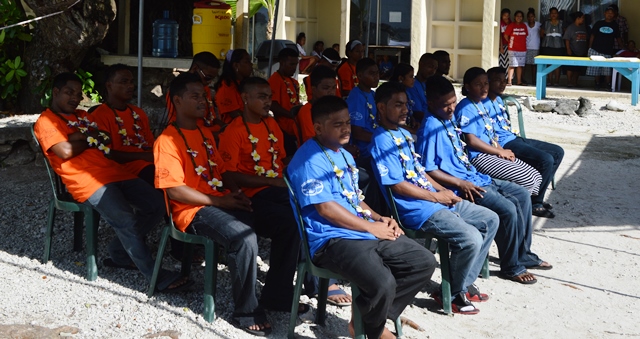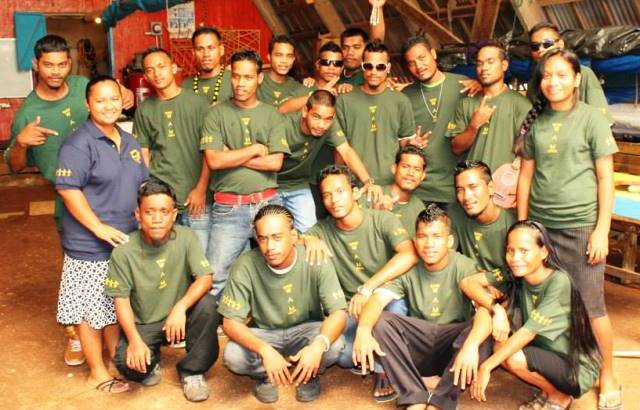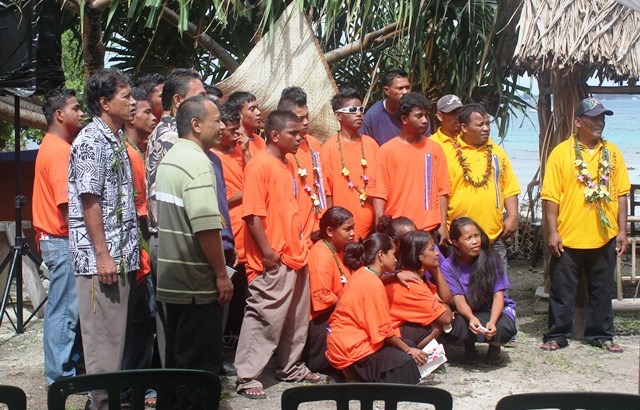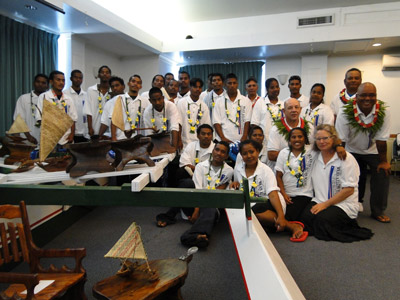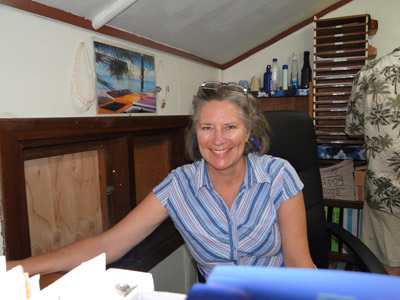About 60 people gathered at the picnic area next to WAM on the afternoon of Friday, October 2, to witness the happy graduation of 20 trainees. RMI National Training Council head Alison Nashon and WAM Director Alson Kelen were amongst those who made speeches, in part congratulating the graduates. A highlight was the fact that a number of the trainees will move straight into employment, following successful internships at local businesses during the training period. Congratulations to all!
Graduates: Arinton Aister, John Bujen, Richie Aikam, Joti Latrik, Anje Banjo – overall top student, March Lakson, Helino Haini, Neil Lakmij – best in safety, Jammy Edwards, Reghie Lucky, Jackhead Francis – best in life skills/counseling, Dalmer Menwe, Jacklyna Jetea, Janen Torelik, Michaelson Jihu, Jeitha Jennop, Jamison Jack, Jacklick Kamo, Rolton Kaiko, Junior Heine- attends Assumption Middle School and was one of the trainees whom graduated with the above trainees and was awarded with a Certificate in completing the WAM Summer Training program.

